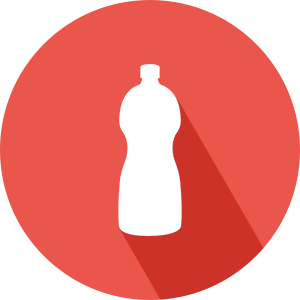Have you ever dared to walk into an Abercrombie & Fitch store? Then the memory of the many muscled six-pack wielding employees probably hasn’t vanished from your mind. The brand seems to be built around the young and fit male employees who guide the customer towards a – likely – pricey fashion investment.
Does this strategy work? Does the sight of bulging biceps, tall v-tapered physiques, and chiseled jawlines truly make the average Joe reach deeper into his wallet? Let’s find out – because science has found an answer.
Posted in Archive, Conversion
published on Wednesday, 23 May 2018
We all know that one friend who wants to have luxury products so bad, they don’t spend too much time thinking whether they actually need the product or if it is of good quality. They just want to have it, no matter what!
Other people are completely insensitive to luxurious brands. They explain that they can buy high quality products from cheaper brands, too.
These are examples of two groups of people. What drives their behaviour? Neuromarketing has the answers.
Posted in Archive, Conversion
published on Thursday, 19 April 2018
What is your association with thinness? Discipline? Beauty? Health? That doesn’t come as a surprise. Advertisers, the movie industry and social media are reinforcing these associations every day, making us believe that being thin is hard work and that everyone can be thin, provided that they have sufficient self-discipline. In Western societies we even see a stereotypical connection between a person’s weight and their economic value, such as success and financial achievement. On the contrary people with a high Body Mass Index (BMI) tend to hold a negative body image about themselves and are more likely to be affected by those idealized standards.
Posted in Archive, Conversion
published on Friday, 09 March 2018
Even Eminem benefits from neuromarketing
Remember Eminem? He was gone quiet for almost four years. Lately, Post Malone, Drake and Kendrick Lamar have been topping the Global Charts.
Every year in November, MTV Europe Music Awards (EMA) review the year and award the best songs. This year, to everyone’s surprise and confusion, Eminem won the Best Hip Hop song with his most recent creation “Walk on Water”. The song was released days before the EMAs. Even Eminem himself was confused with his award as he hasn’t done anything in years. Was the song so great that everyone instantaneously fell in love with it?
Posted in Archive, Conversion
published on Monday, 08 January 2018
Influencing behavior through advertisements, both consciously and unconsciously, but especially the latter, has given neuromarketing a bad reputation. Take James Vicary’s famous subliminal messaging experiment from the 1950s as an example. Vicary claimed that subliminal projections telling ten thousands of people to Drink Coca-Cola and to Eat Popcorn during a movie caused a 18 % sales increase for Coca Cola and 58 % sales increase for popcorn.
Posted in Archive, Conversion
published on Monday, 27 November 2017





